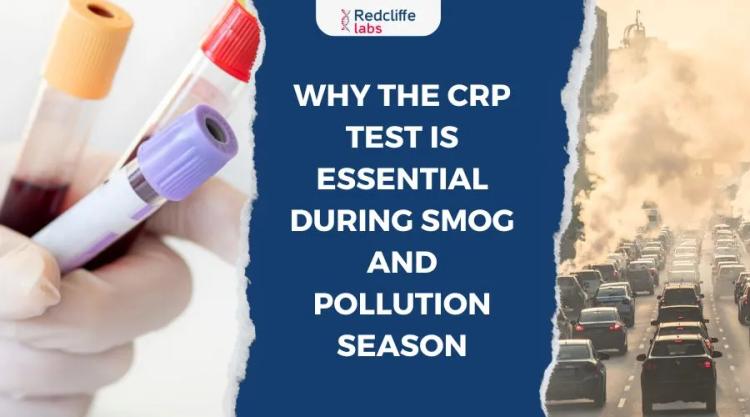TORCH Test: Price, Procedure, Results, Normal Range, and More

Medically Reviewed By
Prof. Ashok Rattan
Written By Muskan Taneja
on Jan 29, 2025
Last Edit Made By Muskan Taneja
on Jul 19, 2025

If you are pregnant, you must take the TORCH test. Why? Because most of the pregnancies experience high-risk pregnancies.
A study by the National Library of Medicine found that 49.4% of women experience high-risk pregnancies, with 33% having a single high-risk pregnancy and 16.4% having multiple high-risk pregnancies. Meghalaya and Manipur had 67.8% and 66.7%, respectively, with one or more high-risk factors.
TORCH pathogens are the most common infections that occur during pregnancy. These pathogens can cause serious medical complications. The best part? You can prevent these complications through a TORCH test.
This blog will explain the TORCH test, viral infection, its purpose, procedure, and results. So, let’s begin understanding everything about the TORCH test.
What is a TORCH Test?
A TORCH test is a group of blood tests that checks for infections in a newborn. A healthcare professional usually suggests the TORCH test in pregnancy. The TORCH test in full form is toxoplasmosis, rubella, cytomegalovirus (CMV), herpes simplex, and HIV. The test also screens for other viral infections. Early diagnosis helps prevent major health complications, including miscarriage, developmental problems, and congenital disabilities.
The test detects disease by screening blood for two specific antibodies. These are immunoglobulin G (IgG) and immunoglobulin M (IgM). IgG indicates a person who has been infected but is no longer ill, while IgM indicates an ongoing acute viral infection.
Did You Know?
A study by the National Library of Medicine found approximately 21,400 children with Down syndrome, 900 with beta-thalassemia, and 5200 with sickle cell disease are born in India every year. This highlights the urge for more awareness, regular genetic testing, and acceptance of parental testing in the country.
Let’s understand the Disease Detected with the TORCH Screen Panel!
- Toxoplasmosis- T. gondiiparasite bacteria cause this infection. It enters the body through uncooked meat or raw eggs. Initially, this infection rarely causes symptoms in the womb, even for a few years after birth. The symptoms appear way later, which include deafness, vision loss, mental retardation, and seizures.
- Rubella—This viral infection can cause children rashes and minor side effects. Health experts also call it German Measles. However, in some cases, it can cause serious congenital disabilities, such as heart defects and vision problems.
- Cytomegalovirus (CMV)- CMV belongs to the herpes family. It doesn’t cause any noticeable symptoms among adults. However, a developing fetus may experience hearing loss, epilepsy, and intellectual disability.
- Herpes Simplex virus (HSV)- This pathogen in the TORCH category may affect the baby in the womb or during delivery in the birth canal. A baby may experience serious disorders, including breathing issues, brain damage, and seizures.
- HIV- The TORCH test can screen for infections like HIV in the mother to prevent the carry forward in the fetus. Additionally, the test can also screen for measles, mumps, Epstein-Barr, chickenpox, hepatitis B & hepatitis C, and Human parvovirus.
How Does a Baby Get the TORCH Infection?
The TORCH viral screens pathogens may transfer to your baby through the placenta during and after birth. The TORCH test ensures the presence or absence of viral infection.
- The placenta provides oxygen and nutrients to the fetus. It can also carry TORCH viral infection.
- A baby can catch the TORCH infection while passing through the birth canal during a vaginal birth.
- If you have an infection, your baby can catch it through breastfeeding.
Why Do You Need the TORCH Test?
A healthcare provider may recommend the TORCH test in pregnancy to check for infections. They usually recommend during the first 3 to 4 months of the pregnancy. A healthcare provider may recommend the TORCH test if they see the following medical conditions. These include:
- Developmental issues
- Congenital disabilities
- Brain and nervous system problems
- Heart problems
- Seizures
- Low platelet levels
- Jaundice
- Intellectual disability (ID)
- Deafness
- Cataracts
- Hepatosplenomegaly or Enlarged Liver
- Trouble feeding and Sluggishness
- Low Birth Weight
- Patent Ductus Arteriosus (PDA)
- Bluish or Purplish Spots (Blueberry Rash)
- Microcephaly (a small head)
Symptoms of the TORCH Test include:
- Fever
- Sore throat
- Cold cores or blisters around your mouth or on your genitals
- Body or muscle ache
- Swollen lymph nodes in your groin area or neck
- Unexplained rashes or skin lesions.
These are some signs indicating the need for the TORCH test. However, you must take the test to prevent serious health complications. These include:
- Learning disabilities
- Developmental delays
- Vision problem
- Hearing problem
When is a TORCH Test Done in Pregnancy?
As early as you can get, the test is an accurate answer for ‘when is a TORCH test done in pregnancy.’ Early detection can prevent the pass-on of infection to the fetus. Certain other reasons for the TORCH test in pregnancy include:
- As a part of routine checkups or parental screening.
- If there are symptoms like fever, rash, or flu.
- If there is exposure to a certain viral (TORCH) infection.
- As a part of additional screening. This can help monitor the mutations in the growth and development of the fetus.
What is the Purpose of the TORCH Test?
The TORCH test helps diagnose IgG and IgM antibodies to infectious diseases during pregnancy. The immune system produces antibodies and destroys harmful substances (bacteria or viruses) in the body. The purpose of the TORCH test:
- To detect disease caused by TORCH pathogens.
- To indicate a current or past infection in the body.
- To check for IgG and IgM antibodies in the newborn.
- To screen for certain diseases like measles, mumps, syphilis, and chickenpox.
Preparations for the TORCH Test
The TORCH test is a blood test that requires no major preparation. However, a doctor may recommend fasting based on your current health condition. You should inform your doctor if you take certain medications to treat any disease.
The Procedure of the TORCH Test
The TORCH test is a blood test that detects various viral infections in the newborn. The procedure for the TORCH blood test is similar to other blood tests. Various diagnostic centers offer the TORCH test. However, you must book it from a reliable diagnostic laboratory like Redcliffe Labs.
Redcliffe Labs is a leading diagnostic service provider, offering many diagnostic tests, from blood to genetic tests. Redcliffe Labs provides an affordable and reasonable TORCH test price. The test can detect the presence of IgG antibodies against various infections like Toxoplasma, Rubella, Cytomegalovirus, and Herpes during pregnancy. Book it by visiting the official page: https://redcliffelabs.com/.
Steps to book a test from Redcliffe Labs
- Search for your desired test after visiting the official website.
- Click on ‘Book Now.’
- Fill out the required information, including address, time, and contact information.
- Make the payment.
- After booking the test, a phlebotomist will visit your home for the sample collection.
The following is the procedure they will follow:
He will clean the area with an alcoholic substance to prevent infections. After cleaning, he will insert a sterile syringe to collect the blood sample. He will transport the collected blood sample to the lab for analysis. The certified phlebotomist performs a seamless sample collection process, which processes no or minor infection. This includes:
- Infection
- Slight pain
- Hematoma
- Various punctured site
- Dizziness or lightheadedness
Understanding the TORCH Screen Results
The TORCH screen result may vary depending on the medical history, family history, age, gender, and other factors. Depending on the signs of IgG and IgM antibodies in the blood, the TORCH test for pregnancy results can be positive or negative.
Normal TORCH test results indicate no sign of viral infections; meanwhile, an abnormal TORCH test result means a high level of immunoglobulins (IgG and IgG) against a certain bacterial infection found in the infant. However, your doctor may recommend certain other blood tests to confirm the normal and abnormal TORCH test results.
Normal Range of the TORCH Test
Here is a table-wise referenced TORCH test result.
| Parameter | Normal Range |
| Rubella IgG | < 10.0 |
| Rubella IgM | < 0.80 |
| CMV IgG | < 0.50 |
| Toxo IgG | < 1.0 |
| Toxo IgM | < 0.80 |
| CMV IgM COI | < 0.70 |
| HSV IgG Index | < 0.90 |
| HSV IgM Index | < 0.90 |
What Does the TORCH Test Positive Mean?
A TORCH test positive means a presence of IgG or IgM antibodies in the blood. This indicates a sign of a current viral infection. If the TORCH screen in pregnancy determines a positive result, which means:
- The TORCH screen panel investigates viral infections, including toxoplasmosis, rubella, herpes simplex (HSV), and HIV.
- A positive TORCH test means you have been exposed to either of these infections at some point.
- The test determines the time of diagnosis. Besides, it also checks whether it occurred before or after pregnancy. This helps understand the risk of transmission to the fetus.
- A healthcare provider may plan accordingly whether there is a need for further diagnostics to evaluate the health of the fetus.
- The TORCH test helps with early diagnosis, which can help manage the infection appropriately. It can also reduce the chances of major health complications for both the baby and the mother.
The TORCH Test After Miscarriage
After a miscarriage, a healthcare provider may recommend a TORCH test and diagnose a viral (TORCH) pathogen as the cause.
The purpose of the TORCH test after miscarriage includes:
- To determine if a TORCH infection caused the miscarriage
- To prevent future miscarriages
- To identify if the patient has antibodies to fight the infection
TORCH Test Positive Treatment
The treatment of the TORCH test depends on the severity of symptoms, specific disease, and when the infection occurred. Usually, treatment includes antibiotics, antivirals, and antiparasitics. However, certain TORCH infections don’t require any treatment and can be managed with rest and hydration.
In some cases, the baby requires immediate medical attention or care at birth in the NICU or neonatal intensive care unit.
A healthcare provider may recommend oral and topical antifungal medications to treat an infection in nonpregnant women. However, some experts suggest that oral medications are not safe to use during pregnancy and may be associated with congenital disabilities. Therefore, it is advisable to consult the doctor before taking certain oral and topical antifungal medications.
Usually, topical antifungal medications are safe, but you should still consider talking to a doctor about them.
| S. No. | Medications | Dose |
| Clotrimazole or Gyne-Lotrimin | 1% cream, 5grams, once a day for 7 to 14 days | |
| Miconazole or Monistat | 2% cream, 5 grams, once a day for 7 days | |
| Terconazole or Terozol | 0.4% cream, 5 grams, once a day for 7 days |
How to Prevent the TORCH Infections During Pregnancy?
First, update your healthcare provider about your medical history, including vaccinations. This can help them plan their pregnancy period properly. Then, take a TORCH blood test from Redcliffe Labs to detect any signs of TORCH infection in your blood. Certain things can lower the risk of TORCH infection during pregnancy.
- Take antiviral medicines after being prescribed by your healthcare provider.
- Avoid cleaning litter boxes (of pets) during pregnancy.
- Eat fully cooked eggs and meat.
- Have a protective sex.
- Get tested for STIs before pregnancy or in the first trimester.
- Avoid traveling to countries where the prevalence of infectious diseases is prevalent.
- Don’t share utensils or drinks with other people.
- Wash your hands properly with soap and water.
- Avoid contact with people who are sick.
- Keep the vaginal area dry.
- Wear cotton innerwear
- Avoid bubble baths and feminine hygiene sprays
TORCH Test Price @ Redcliffe Labs
Redcliffe Labs, a leading diagnostic laboratory in India, offers over 3600 tests, from routine to genetic tests. Every price is affordable and reasonable, from the cost of a TORCH test to other diagnostic tests. However, factors like location and discount offers may vary the TORCH test price. Book the TORCH test and avail yourself of an affordable price, a home sample collection, and the shortest turnaround time (TAT).



